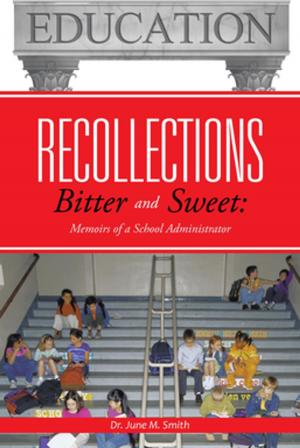Ditching Shop Class: Eliminating Vocational Education in America's Public Schools
Nonfiction, Reference & Language, Education & Teaching, Educational Theory, Educational Reform, Philosophy & Social Aspects| Author: | Joe Petito | ISBN: | 9781311274380 |
| Publisher: | Joe Petito | Publication: | July 1, 2014 |
| Imprint: | Smashwords Edition | Language: | English |
| Author: | Joe Petito |
| ISBN: | 9781311274380 |
| Publisher: | Joe Petito |
| Publication: | July 1, 2014 |
| Imprint: | Smashwords Edition |
| Language: | English |
Common Core. NCLB. Differentiation. A through G. Race To The Top. Despite all this, we continue to push kids through school and out the other end with little to show for the time invested, our efforts, and the public's money. Meanwhile, the Achievement gap, the Poverty Gap widen, and kids arrive at the high school commencement stage without basic skills to obtain and hold employment.
Ditching Shop Class: Eliminating Vocational Education in America's Public Schools, is an educator's analysis of how and why we have eliminated vocational and technical education in public secondary schools, and what this has done to skew education into a single Track where every kid is made to prepare her/himself for obtaining a university degree, no matter their interest or capability.
The skewed disposition on the part of educators, a bias toward one style of education, has in turn created a form of hubris where we (educators) dictate what is to be learned, when and how, without an understanding of the types of skills needed to promote continuity in a technically diverse job world. This bias is fuelled by a number of things:
*Vocational education (shop class) is viewed as the dumping ground for kids of minority and low socioeconomic status.
*Vocational education is perceived as atavistic; a throwback to an age superseded by the progress of technological evolution.
*Shifting to the digital and Cloud-based learning at the expense of working with realia.
*Attempting to squeeze more education into a time frame incapable of stretching to fit the accoutrements, while labeling kids well-prepared for the world outside the school gate.
*Our belief that technical and vocational skills are learned rote, leaving students stranded with lower-order thinking/problem-solving skills, while we believe the job world is moving toward the need for higher order cognitive skills.
*Our moves as educators to skew the secondary school coursework structure that filters out students with differing skills, who desire different kinds of education options.
*Our attempts as educators to provoke culture change, producing a more refined disposition in our students that move away from educating for jobs falling under terms like Blue Collar, Working Class.
These and more have reoriented public education, have dictated our move toward getting every kid marching in step with one style of education. The result: an increase in the Achievement Gap, and by extension, the Poverty Gap.
Common Core. NCLB. Differentiation. A through G. Race To The Top. Despite all this, we continue to push kids through school and out the other end with little to show for the time invested, our efforts, and the public's money. Meanwhile, the Achievement gap, the Poverty Gap widen, and kids arrive at the high school commencement stage without basic skills to obtain and hold employment.
Ditching Shop Class: Eliminating Vocational Education in America's Public Schools, is an educator's analysis of how and why we have eliminated vocational and technical education in public secondary schools, and what this has done to skew education into a single Track where every kid is made to prepare her/himself for obtaining a university degree, no matter their interest or capability.
The skewed disposition on the part of educators, a bias toward one style of education, has in turn created a form of hubris where we (educators) dictate what is to be learned, when and how, without an understanding of the types of skills needed to promote continuity in a technically diverse job world. This bias is fuelled by a number of things:
*Vocational education (shop class) is viewed as the dumping ground for kids of minority and low socioeconomic status.
*Vocational education is perceived as atavistic; a throwback to an age superseded by the progress of technological evolution.
*Shifting to the digital and Cloud-based learning at the expense of working with realia.
*Attempting to squeeze more education into a time frame incapable of stretching to fit the accoutrements, while labeling kids well-prepared for the world outside the school gate.
*Our belief that technical and vocational skills are learned rote, leaving students stranded with lower-order thinking/problem-solving skills, while we believe the job world is moving toward the need for higher order cognitive skills.
*Our moves as educators to skew the secondary school coursework structure that filters out students with differing skills, who desire different kinds of education options.
*Our attempts as educators to provoke culture change, producing a more refined disposition in our students that move away from educating for jobs falling under terms like Blue Collar, Working Class.
These and more have reoriented public education, have dictated our move toward getting every kid marching in step with one style of education. The result: an increase in the Achievement Gap, and by extension, the Poverty Gap.















